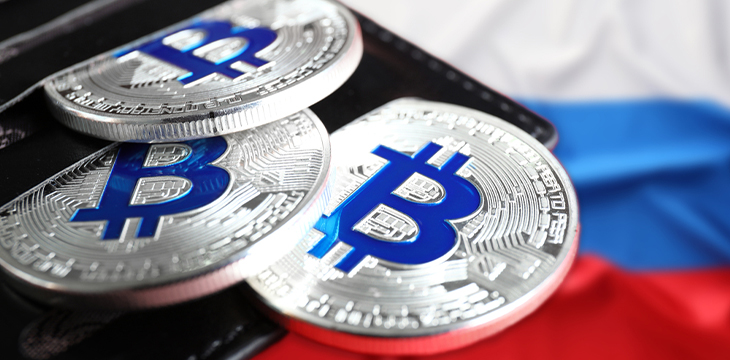|
Getting your Trinity Audio player ready...
|
Russia is diving deeper into digital assets for cross-border payments to circumvent sanctions from the Western world.
The Russian government plans to start trials next week on the use of a digital token for payments with its allies, Bloomberg reports, citing sources within the President Vladimir Putin administration.
This year, Russia has warmed up to digital assets as it explores an alternative to global financial systems to which it no longer has access. A month ago, it passed a bill legalizing digital assets, just weeks after the Bank of Russia revealed it considered ‘crypto’ a viable alternative to SWIFT, the global interbank messaging system that kicked Russia out following its conflict with Ukraine.
This digital currency master plan could come together soon, Bloomberg says. Its sources revealed that the country is working on integrating its upcoming digital asset exchanges into the National Payment Card System. This system launched in 2014 and underpins the country’s interbank payments and its Mir national payment cards.
While it’s been public knowledge that Russia is exploring digital assets, it’s the first time it’s been revealed that the country could establish national digital asset exchanges.
However, according to industry experts who spoke to local business newspaper Kommersant, regulations could significantly impede the government’s plan. Most of this year’s digital asset bills have focused on ‘crypto,’ not the exchanges.
“In this regard, there is no clear and unified legal mechanism for the creation and operation of crypto exchanges,” says Yaroslav Shitsle, head of IP law at Rustam Kurmaev & Partners, a Moscow-based law firm.
According to reports, the pilot phase will be limited to blue-chip companies before expanding to other interlinked and related businesses.
“It is important to emphasize once again that the contours of the future experiment are completely at the mercy of the regulator,” says Mikhail Uspensky, an expert on digital asset legislation at the State Duma.
He believes that small and medium enterprises (SMEs) will likely not be able to access the exchanges in the first phase.
Others, like TerraCrypto’s Nikita Vassev, believe the exchanges will fail. TerraCrypto organizes networking events for miners and traders in Russia.
“Those who have a choice will not exchange convenient trading platforms that the best developers have been improving for years for domestic platforms…Only those who have no other choice will use them. The only scenario in which a market participant will go to a domestic platform is hopelessness,” he told Kommersant.
Watch: Regulation leads to good uptick for Web3 operators

 02-24-2026
02-24-2026 




